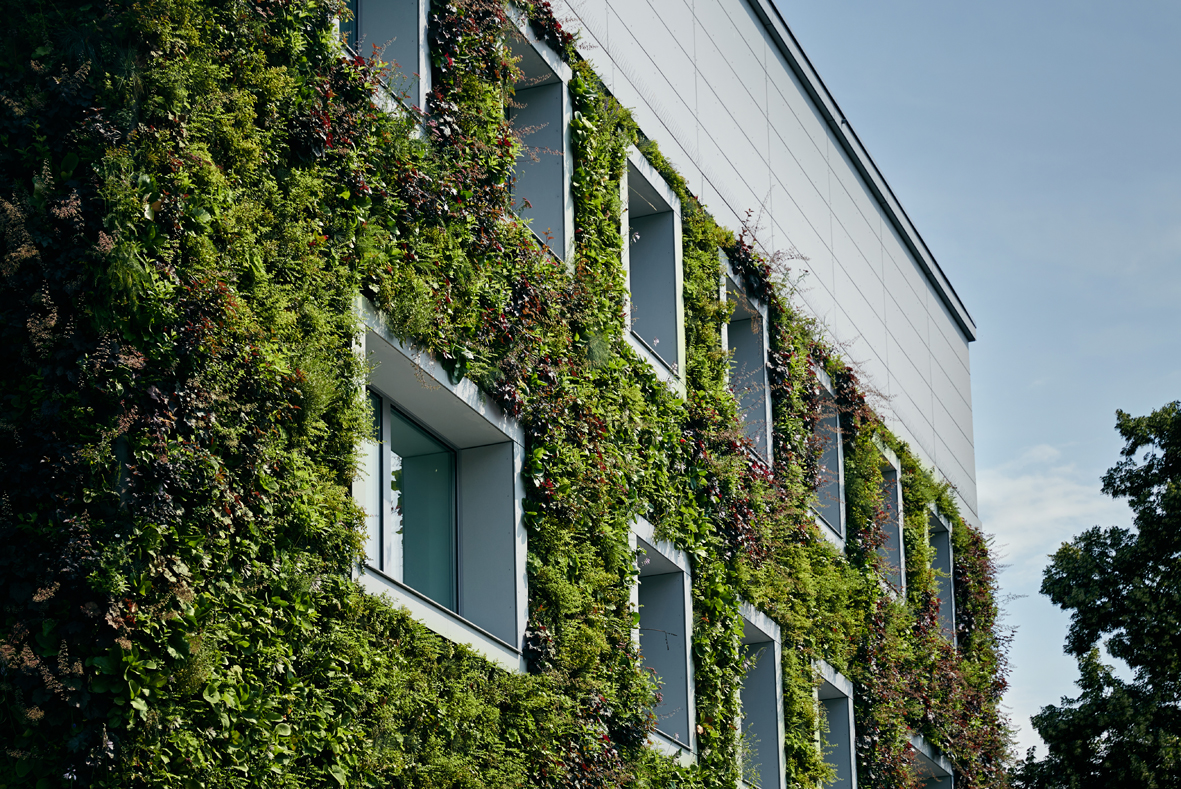Small water retention protects against the drought effects
Over the years many riverbeds have been shortened, drainage ditches have been built, peat lands and swamps have been drained in Poland. All these actions accelerate water runoff from the land. "Now, the past investments have the opposite effect than we desire" – estimates hydrologist Prof. Paweł Rowiński, Vice President of the Polish Academy of Sciences (PAS).

Vertical garden on the facade of the Foundation for Polish Science, Warsaw (photo by Bartłomiej Senkowski)
In an interview given to Business Insider, the expert indicates that the priority for our country should be small water retention, which means capturing rain where it falls.
"We really need to learn dispersed water management, which includes such actions as building various small detention tanks, rainwater harvesting (storing and reusing rainwater for outdoor purposes) or lowering water consumption by reducing cultivation of water-intensive crops. And last but not least we need to invest, both in our cities and gardens, in solutions that can retain as much rainwater as possible (i.e. green roof systems, living walls, etc.)" – explains Prof. Paweł Rowiński.
Hydrologist reminds us that the frequency of occurrence of drought in Poland has been lower compared with the 1970s, when droughts appeared once every five years. Now, for the third year in a row, we are struggling with this severe phenomenon.
Best practices from around the world
The Vice President of the Polish Academy of Sciences indicates that we should also invest in the so-called sponge cities that are designed to capture rainwater and utilize it. In such places rain gardens dominate, rooftops and facades are covered with plants, and rainwater is used for watering and even flushing toilets in apartments and public buildings. China and Europe are willing to invest money in building sponge cites, while Berlin and Copenhagen do this on an impressive scale.
We can also learn wise water management from countries that have been dealing with water scarcity for a long time. One of such countries is Israel – global leader in drip and micro-irrigation solutions used in agriculture, wastewater treatment and seawater desalination.
Source of information: Business Insider (May 4, 2020)
Source of photo: Foundation for Polish Science
